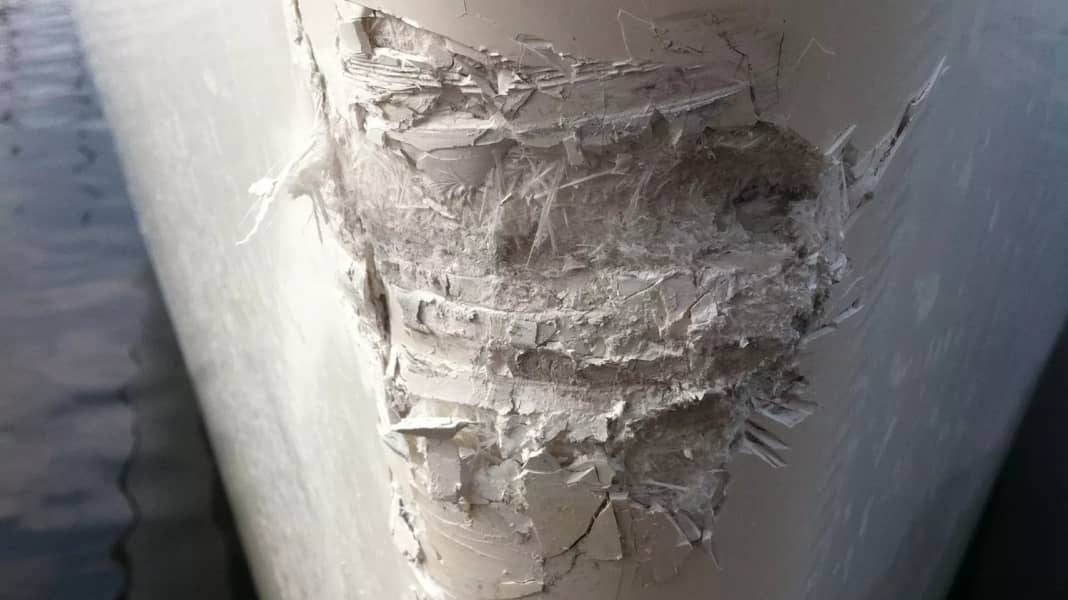
BOOTE: What insurance is generally available for used boat buyers?
Hilcken: Boat liability insurance and hull insurance are of particular interest to boat owners. Depending on your individual needs and against the background of existing insurance policies, you should also take a closer look at legal expenses and passenger accident insurance.
Why do I need boat liability insurance?
In short, boat liability insurance protects the owner if his boat causes damage to others and he has to compensate them.
What could such damage be?
For example, I could collide with a ship or jetty and damage it. Or a crew member comes to harm due to my culpable behaviour.
What sum insured makes sense for boat liability insurance?
We recommend a sum insured of at least 7.5 million euros in order to be adequately insured throughout Europe.
Why do I need boat hull insurance?
The boat hull insurance covers my financial risk, i.e. the value of my boat, in the event that it is damaged or perhaps even has to be salvaged. It is often the case that owners have caused the damage themselves. Collisions and groundings are the most common causes. However, without hull insurance, you also run the risk of being left with the damage if, for example, no one can be held liable for a fire, lightning strike or burglary. Or because the owner of a neighbouring boat is not at fault if, for example, his boat has broken loose in a storm and caused scratches to the neighbours. Or because there is someone who caused the damage, but they have no liability insurance and no other money with which to settle the claim. In these cases, too, your own boat hull insurance comes into play.
What should you look out for in boat hull insurance?
You should make sure you insure your boat with a specialist. In the event of a claim, it makes a difference whether the insurer only covers boats, is available at night and has people who know what to do in the event of a water ingress in Sweden.
You should check the insurance conditions for the following points:
- Is everything insured, including equipment, dinghy and the like? Even if I purchase accessories at a later date?
- Can the insurance company also insure me in the desired cruising area? This is not a matter of course, especially if you want to go on a long cruise.
- Are as many risks as possible insured?
- What is excluded and how are the exclusions formulated?
- Expenses such as salvage and wreck removal must also be insured.
- Is the insurance value a fixed rate?
- Is partial damage compensated without deductions?
- Are the conditions clear and easy to understand?
Which exclusions of liability should be avoided with boat hull insurance?
Anything that is incomprehensible or not clearly formulated should be avoided, such as an exclusion due to initial unseaworthiness. In the case of exclusions such as wear and tear or similar, the consequential damage should also be insured. Then the shroud tensioner can capitulate, but the mast breakage will be replaced. Or if normal weather influences such as ice are excluded, the exclusion should not apply to sinking if you want to leave the boat in the water in winter.
Is boat liability and hull insurance really necessary?
In contrast to northern Europe, liability insurance is mandatory in the countries bordering the Mediterranean. If I don't have any - or don't have current proof of this on board - I will probably be arrested by the authorities in the next harbour.
But even here, almost all harbours and winter storage facilities require me to have liability insurance for my boat. When taking part in regattas, it is mandatory to have boat liability insurance.
Ultimately, however, it does not matter whether it is mandatory or not. You are fully liable for any damage caused to third parties by your boat. Travelling without liability insurance is simply completely irresponsible.
Hull insurance, on the other hand, is the optional extra: the more valuable the boat, the higher my financial outlay, the more important it becomes. Hull insurance does not automatically include third-party liability insurance or vice versa.
When do I need to take out insurance when I buy a second-hand boat?
It makes sense to find out about the insurance cover of an interesting used boat in good time so that you can look for alternatives in good time if necessary. I should have taken out the right insurance products for me from the moment ownership is transferred. The purchase of a new boat, even a second-hand boat, often involves an increased risk, for example because the boat has to be transported directly to the buyer's home territory.
Does an existing boat insurance policy have to be taken over?
No, of course I don't have to take it over. Insurance policies of the previous owner can be transferred to me, so you should always ask whether the boat is already insured. Both parties then have a right of cancellation. Some insurers make this more convenient and offer the buyer provisional cover for one month after the transfer of ownership, which does not have to be cancelled separately.
How is the time of transfer of ownership defined?
As a rule, ownership is transferred when the ship is handed over. Of course, other constellations can also be agreed in the contract, e.g. that ownership is not transferred until the last instalment of the purchase price has been paid.
What documents are required when taking out boat insurance for a used boat?
As a rule, none. The value of newer boats is easy to estimate. In the case of older used boats or classics, evidence of refits or even an expert opinion may be requested by the insurer.
What needs to be considered when buying a trailer?
Tax-exempt sports trailers with green licence plates are automatically covered by liability insurance via the towing vehicle. In the event that the trailer is not coupled to a vehicle and causes damage to a third party, the owner of the trailer is personally liable. These trailers can be included in the boat liability insurance for an additional premium. If you want to register a trailer with a black licence plate that is subject to compulsory insurance, you will need an EVB number. This can be issued by your motor vehicle insurer or by our colleagues at Pantaenius Versicherungsmakler GmbH.
Editor's note: The trailer can cause damage to your own vehicle, especially when manoeuvring. However, this is not always covered by comprehensive motor vehicle insurance. Read this article to find out how you can insure yourself for such cases:
Is the road transport from the seller to the new berth insured if you drive yourself?
Yes, transport, including land transport, is included in the cover of a good boat hull insurance policy. But only if it has been taken out in good time or the provisional cover is still valid.
Under what circumstances does legal expenses insurance make sense in connection with a used boat?
A new hobby harbours new risks. Purchase contracts, warranty defects, refit measures or even a simple dispute over the correct berth promised can make legal action necessary. This is where legal expenses insurance with contract law cover is a great help. The passenger accident insurance mentioned at the beginning should also be considered.

This article is part of the Used boat purchase special. All contents:
- Buying a used boat: The key to success - How to do it right!
- The advantages and disadvantages of used boats
- How to find the right boat
- Typology - The most important types of motorboat
- Boat exchanges: Your guide through the online jungle
- You should look out for these weak points
- Checklists for the test drive and inspection
- How to avoid traps in the purchase agreement
- What new owners need to know
- You need these insurances for your boat


